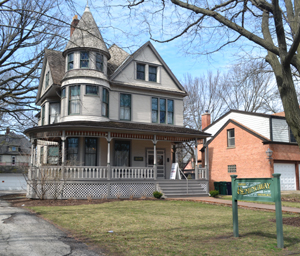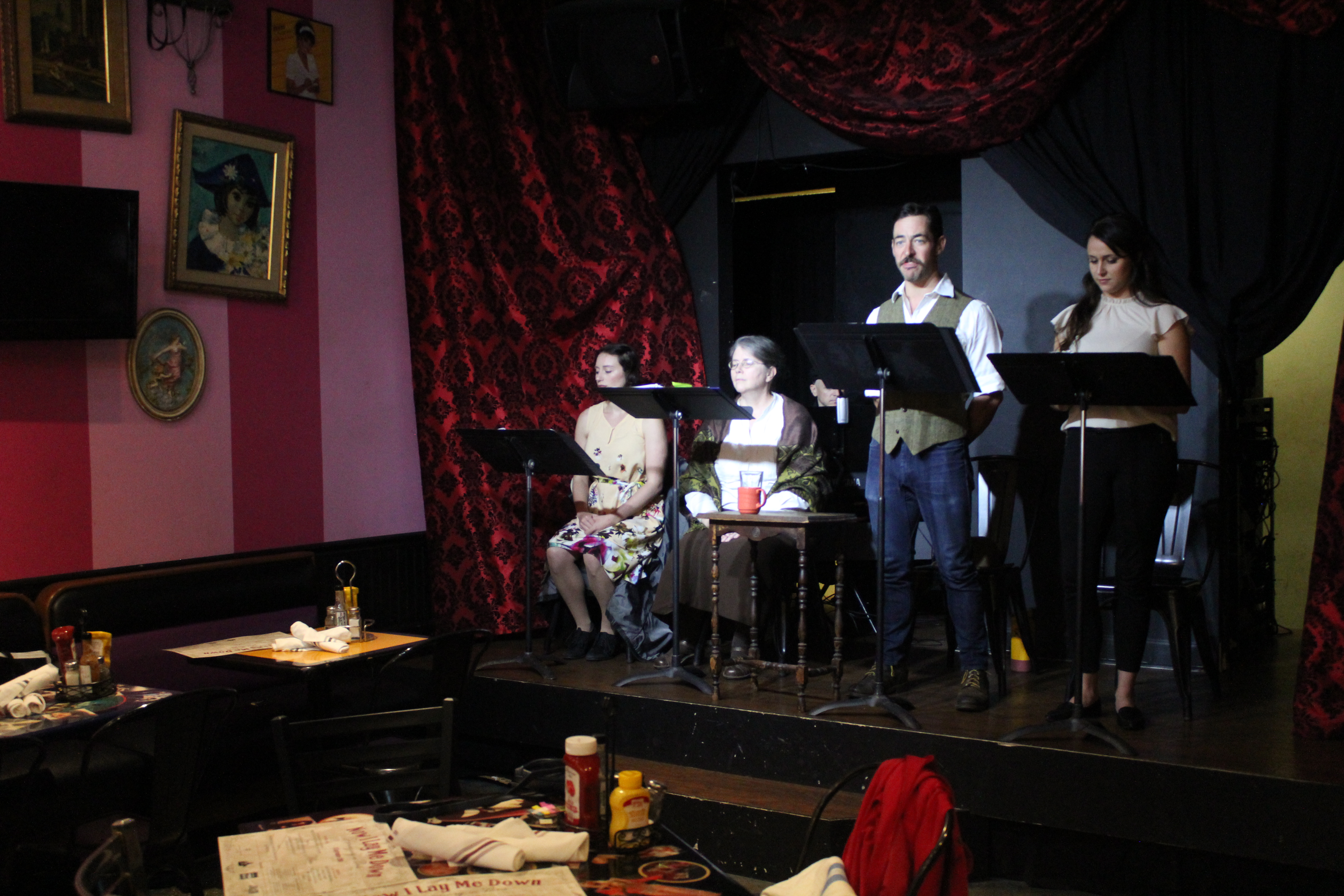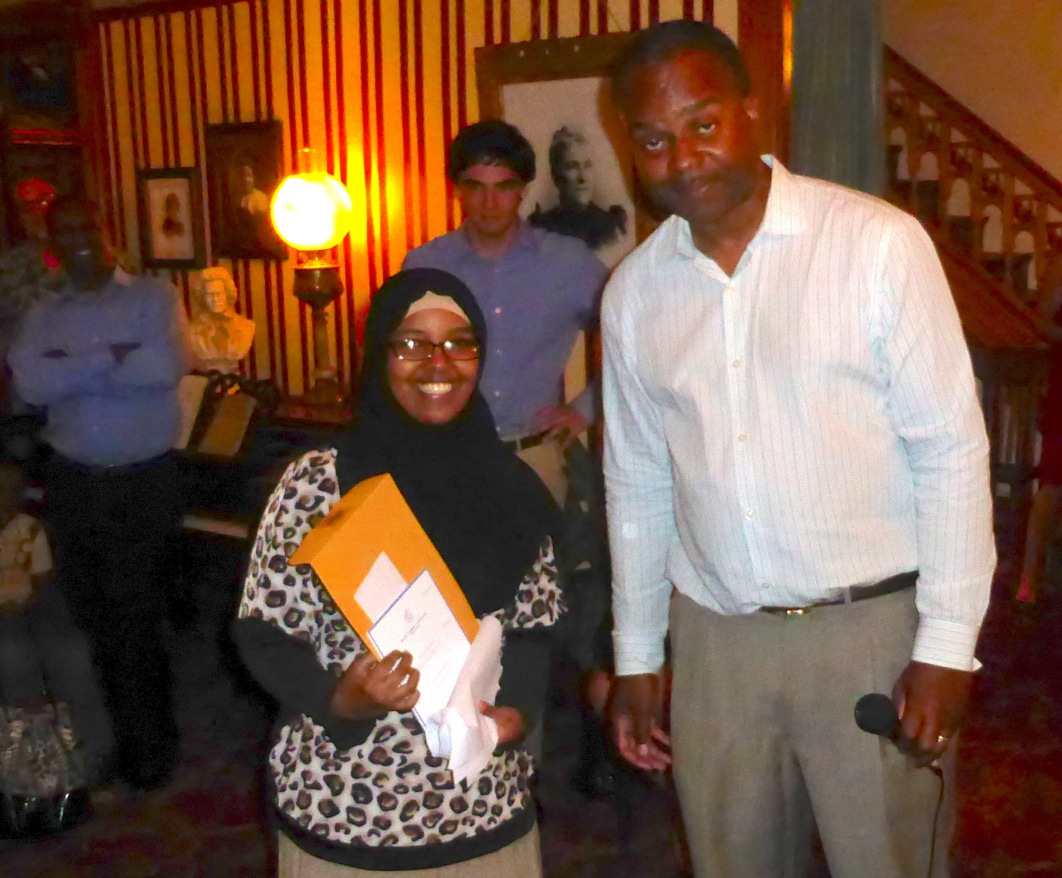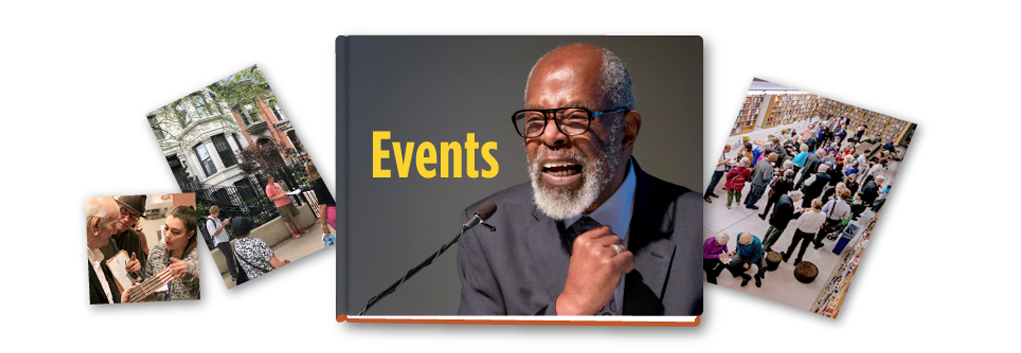Help Keep the Hemingway Birthplace Open to the Public
Monday, October 12, 2020
The Ernest Hemingway Foundation of Oak Park has started a fundraiser to help keep the famous author's Oak Park birthplace open to the public.
https://charity.gofundme.com/o/en/campaign/keep-the-hemingway-birthplace-doors-open
By Donald G. Evans
By the time Ernest Hemingway killed himself in Ketcham, Idaho on July 2, 1961, he had secured his legacy as one of the 20th century's best and most fascinating authors. His larger-than-life persona and enormous ego, as well as an appetite for adventure, led Hemingway to ping around the globe. He became associated over his lifetime with Paris, Havana, Madrid, Key West, Toronto, Kansas City, Walloon Lake, and of course Ketcham. Along the way, he won major literary prizes, including the Nobel Prize and the Pulitzer Prize, and was a finalist for the National Book Award. He left a library of masterful novels and short stories.

Before all that, though, Hemingway was an Oak Park boy. Hemingway’s life tells us a lot about his writing, and his writing tells us a lot about the world during the decades of his highest output. That his birthplace in Oak Park not only survived the century after his family moved but is available for public viewing is a gift. Though gift is not the right word.
The Ernest Hemingway Birthplace at 339 N. Oak Park Avenue was purchased and restored, at great cost, by the Ernest Hemingway Foundation of Oak Park. An army of dedicated professionals and volunteers toiled to plan and execute the acquisition and restoration process and ever since to make it available to the public. Donors big and small, many from Oak Park and Chicago but extending across the globe, have given their money to keep the house operational. It is important to a lot of people for a lot of reasons that the house be preserved. It has been a community effort to make it so, and Oak Park of course has prospered because of these efforts. After all, what would the Hemingway District be without Hemingway’s house?
When I first moved to Oak Park, about 15 years ago, I volunteered as a docent at the birthplace. I was the stay-at-home dad to a not-quite two-year-old, and to get out of the house once a week seemed a good way to decompress. I enjoyed walking to the house, stuffing my computer bag in a closet, and settling in. My job was to lead tours of the house, so I’d memorized the script provided to docents and then did some of my own poking around to flush out the narrative. I talked to others in the Hemingway Foundation sphere, who’d made it their mission to discover everything there was to know about that house and what happened in that house between the time Hemingway was born and the time the family moved to a bigger house on Kenilworth, a few blocks away.
Honestly, I’d root for nobody to show up. Those first 15 minutes, before my shift officially started, before the house opened to the public, served as my own brand of meditation. My son Dusty—dear to me as he was—required a lot of attention, energy, and focus, and being away from him, for just those couple of hours, helped me recharge. The old Victorian home in which I sat would have been pretty spectacular even had it not been associated with the famous author whom I’d admired so much when I first started thinking of myself as a writer. A gorgeous place in which the natural light always seemed staged for effect, like I was doing my small bit in a Hollywood production.

on Sept. 18, 2019 at Hamburger Mary’s in Oak Park.
Often, in those moments of solitude, I’d step out onto the porch, sit down on the wooden bench. I’d watch people walk this way and that, the traffic on busy Oak Park Avenue zip up and down, and then I’d start thinking about my script, about Hemingway, about how then, just around the turn of the 20th century, the sidewalks would have been wooden, the streets unpaved, the prairie wild just beyond the village limits. About how rare the automobile was then, about the single digit phone number that the Hemingways would have had, about the complete darkness that would have engulfed the street at night when there were no streetlights and many of the houses did not yet have electricity. I’d think of what the neighborhood looked like, whether people would have heard, from the safety of their homes, the scurrying at night as their friends discreetly rustled their way to the outhouses.
Then I’d think of Ernest Hemingway the baby, the toddler, knowing what he became. Would he have achieved what he achieved, risen to the upper stratosphere of the literary world, if he’d been born and raised in San Franciso or New York City or even Naperville? Nobody knows, of course, but I somehow think not.
And as much as I’d root for the general public to stay away, to relieve me of the responsibility of leading the tour, to allow me some more solitude, they did come. Young couples from the North Side who’d been planning to visit Oak Park for years but only now had gotten around to it. Tourists from Germany and Japan hitting the most obvious landmarks. Scholars and devotees from New Jersey and Wyoming and Nevada. Once the people arrived, I found that I no longer wanted the place to myself, that I wanted to share. Everybody, almost, that entered that house seemed nice. Intellectually curious. Generous. As I would go through the narrative and answer questions, it became something special. Here we were, meeting and conversing and sharing (visitors often had as much to offer about Hemingway as I had to offer them) in a way that would not have happened except for this house. On my walk home, hurriedly making my way back to Dusty, I felt good about it all. I felt connected to the world in new ways, I felt inspired, I felt eager to do something that made a difference.
More than a hundred years had passed since Ernest Hemingway last set tiny feet in that house. I stayed on as a docent a year or two, and in that time I logged a good number of hours. I wouldn’t call it sacrifice, exactly, but it was time. Then I think about how little time I spent in relation to the vast amount of time spent by so many others to make this experience available to anybody who wants to have it. To preserve this history, and in the process grow our sense of community and global citizenship.

Literary Masters winner Muna Abdullahi at the
birthplace on July 20, 2013.
I met a bunch, I mean a bunch, of really good, really smart, really devoted people during my time as a docent and then in my role as the Chicago Literary Hall of Fame founder and director. John Berry, Allison Sansone, Toni Nealie, the late great Redd Griffin and Ginny Cassin, Michelle Moore, Nancy Sindelar, Keith Strom….the list is really quite extensive. Of all the partners we’ve had at the CLHOF, EHFOP ranks at the very top, mostly because they understand that what they’re doing and what we’re doing, what we’re all doing, matters. CLHOF has partnered with EHFOP on a ceremony to honor aspiring writers, a youth creative writing workshop, a panel discussion on Hemingway in fiction, a community chain story, and a staged reading of an adaptation of A Moveable Feast. Each of these events was magical in its own way, and I am certain the results would have been much less had it not been for the extraordinary energy, intelligence and passion that the foundation and its members brought to every detail.
Now, the health pandemic threatens to undue all the good work to come. The Hemingway birthplace is a small museum. It does not, like larger institutions, have an endowment and at any given moment has only a little in reserve. The work the foundation does, particularly opening the house to the public, relies on tour admissions. Illinois mandated the house’s closure in the spring and summer of this year, and as a result the reserve funds are more than depleted. According to the foundation’s plea for contributions, “Now, there is simply not enough funding for us to continue operation. The doors will close this winter, and we will not be able to reopen them in the spring.”
But we can do our part to rescue the Hemingway birthplace from such an unfair fate. Maybe you’ve visited the house in the past, or plan to visit in the future. Maybe you’ve attended one of the foundation’s lectures, art programs, or book discussions. Maybe your son or daughter has benefitted from one of the student writing programs, or maybe you’ve participated in the annual short story competition or Writer-in-Residence program. Or maybe you just like the idea that when you walk the streets of Oak Park you can still find traces of its most significant literary hero.
I am sure each of us has a good reason to want Hemingway’s birthplace to remain open to the public. Times are tough for a lot of us and I am not assuming that anybody has any disposable income right now. But if it’s feasible for you to give, give.
https://charity.gofundme.com/o/en/campaign/keep-the-hemingway-birthplace-doors-open
The foundation’s fundraiser has only just started, but through it more than $17,000 has already been raised. A great start. But there is a long way to go to meet the target of $75,000. There are a lot of us; that is how we’ll get through the pandemic in a way that will allow us to enjoy pleasures like the Hemingway birthplace in our covid-free future. We come together now, each of us gives just a little, and that adds up to just enough.
Help if you can. The Ernest Hemingway Foundation of Oak Park does important work in preserving our history and celebrating our present. Let’s give enough to let them keep doing their work so that we can all enjoy it for many years to come.
Donald G. Evans is the Founding Executive Director of the Chicago Literary Hall of Fame. He is the author of a novel and short story collection, and editor of an anthology. His personal blog often explores Chicago literature.








